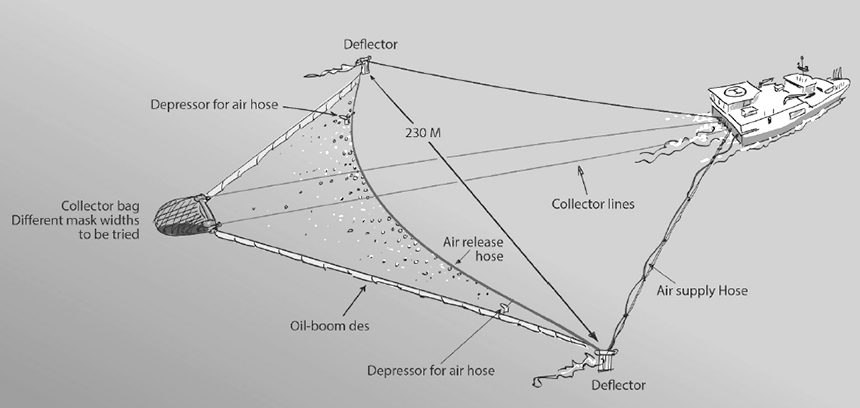In 2017, PGS launched a concept for collecting plastics at sea that uses the inherent capabilities of seismic vessels. PGS then commissioned a desktop review by an independent consultant of the potential and feasibility of the concept, using funds received from the Norwegian development and investment bank 'Innovation Norway'.
The results of the feasibility study were published in Q3 2018. The report concludes that, "pelagic microplastic densities are too low for surface plastic collection to be efficient on the open ocean, but densities may be higher in certain areas or during certain seasons, or during flush-out events." A review of synthesis and modeling studies identified areas where plastic could be available in high densities, due to the likelihood of high input flows from runoff and rivers during wet seasons. These include the Gulf of Mexico, the Caribbean Sea and the West Coast of Africa around the north Atlantic Margin.
PGS is now progressing with a more detailed technical study that will include theoretical engineering and hydrodynamics considerations. Discussions are ongoing with potential partners and suppliers for the boom arrangement, bubble curtain and collection unit.
 Conceptual drawing of boom and collector bag arrangement with submersed air hose for generation of an air curtain to lift plastics suspended in the water column to the surface.
Conceptual drawing of boom and collector bag arrangement with submersed air hose for generation of an air curtain to lift plastics suspended in the water column to the surface.
Our next step will be to seek funding for a full-scale pilot test. Based upon the recommendations in the feasibility study, this full-scale pilot would involve a single seismic vessel towing a boom and skirt arrangement with a bubble curtain that lifts plastic to the surface for collection in a permeable collection bag. The pilot would be conducted offshore, over a period of approximately two months in either the Atlantic or the Caribbean.
The purpose of the pilot will be two-fold:
-
Test the efficiency of the collection concept both offshore and near-shore
-
Conduct scientific research on the occurrence, density and characteristics of plastics in the ocean
To facilitate the latter, PGS proposes a large aperture sampling system enabling unprecedented coverage. Academic institutions will be invited to join us, using our vessel for the duration of the pilot to conduct relevant research on plastic pollution in the oceans.
The full feasibility study can be downloaded here.
For details, contact:
Bård Stenberg, SVP IR & Communication
Phone: +47 67 51 43 16
Mobile: +47 992 45 235
Contact Corporate Communications
If you have questions related to our business, send us an email request or call Bård Stenberg VP IR & Corporate Communications: +47 992 45 235